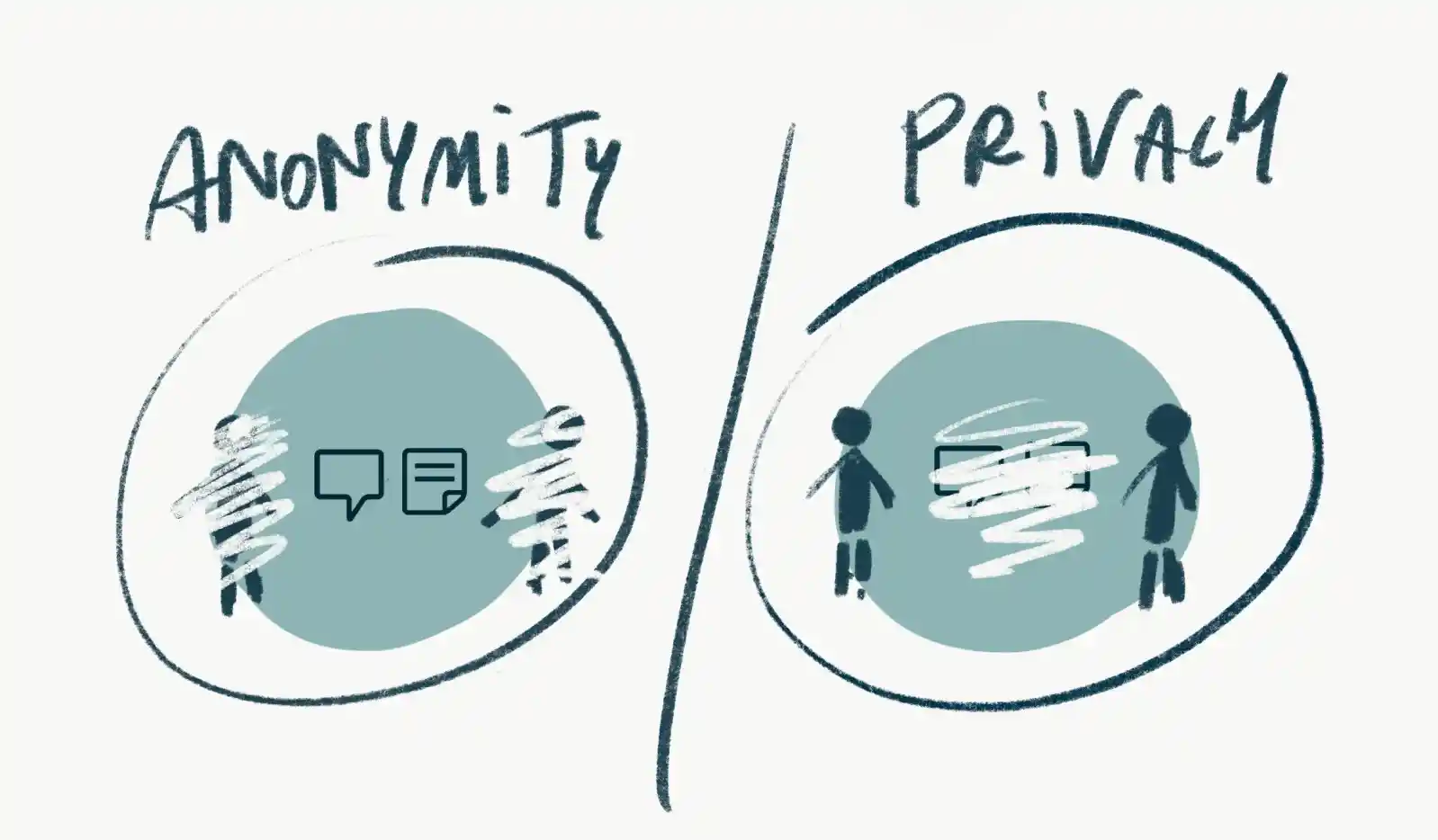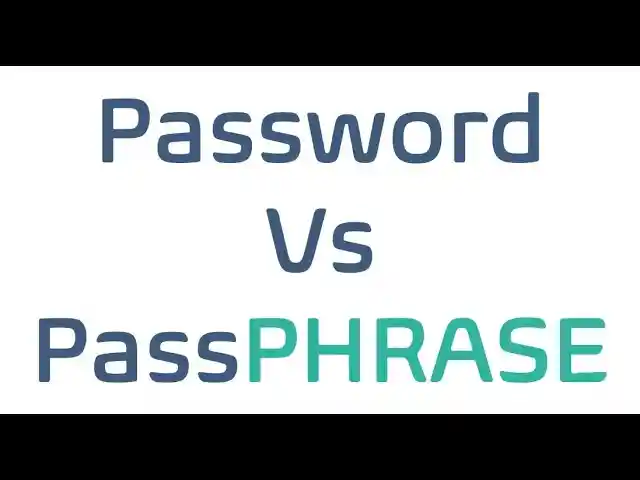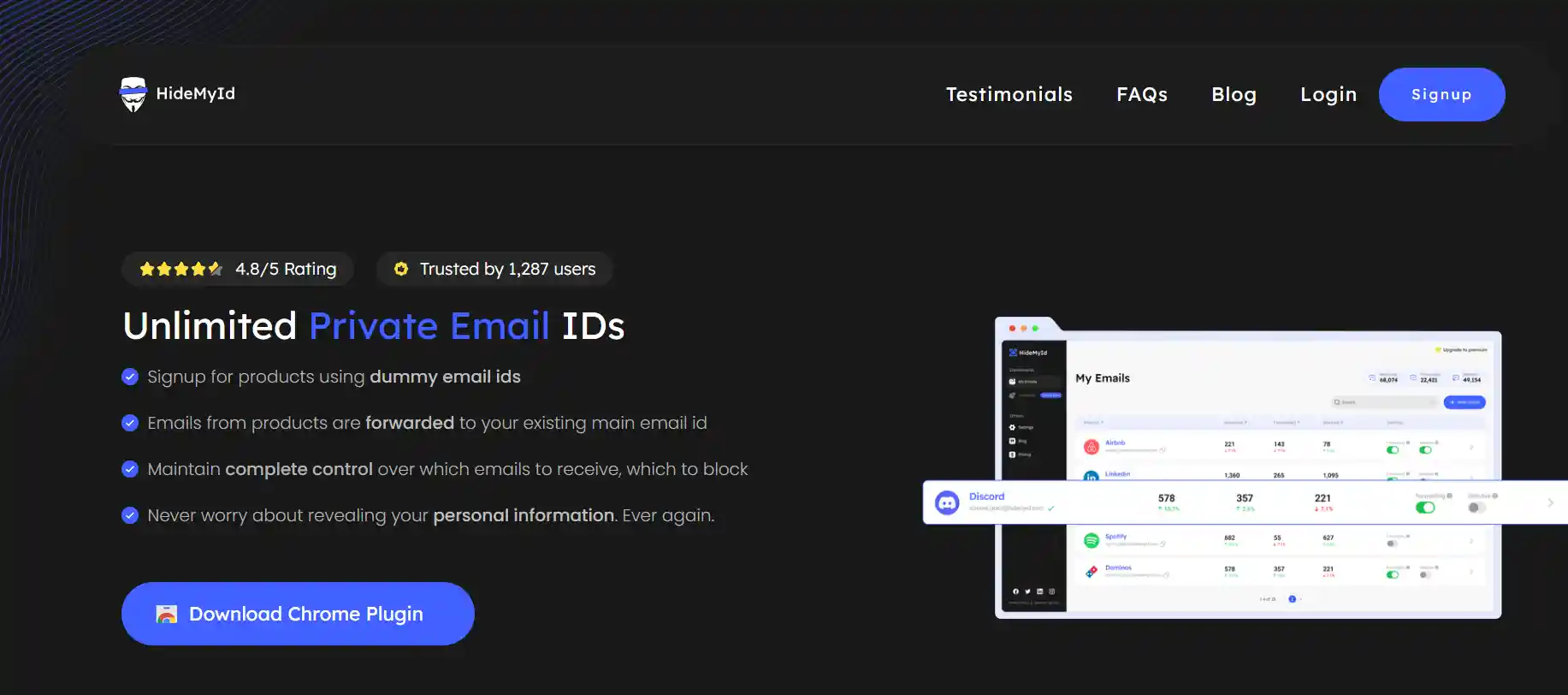Table of Content
In the linked world of today, privacy and anonymity are key ideas that influence how we interact with the internet. The phrase “privacy” describes people’s ability to manage their personal information, including who can access it and how. Conversely, anonymity entails hiding one’s identity, enabling people to participate in activities without disclosing who they really are. Anonymity stresses the hiding of identity, whereas privacy concentrates on the protection of personal data.
1. Privacy Focus
– Top priority for individuals and corporations.
– Addressing concerns related to data breaches and online surveillance.
2. Anonymity Benefits
– Promotes freedom of speech.
– Reduces the risk of personal exposure.
– Provides a layer of safety for anonymous participation in activities.
The importance of anonymity and privacy goes beyond personal choices and has wider societal ramifications. Maintaining fundamental rights and liberties in the digital sphere requires finding a compromise between these two ideas.
We may learn a great deal about how privacy and anonymity affect our online interactions and why they are so important in the current digital environment by exploring their differences.
Privacy and Anonymity Defined
Privacy and anonymity are integral concepts in the contemporary digital landscape, playing pivotal roles in shaping individuals’ interactions and experiences online.
At its core, privacy revolves around the ability to control access to personal information, allowing individuals to dictate who can obtain and utilize their data. This concept has gained paramount significance as the digital realm continues to expand, with users actively seeking ways to safeguard their sensitive information from unauthorized access and potential misuse.
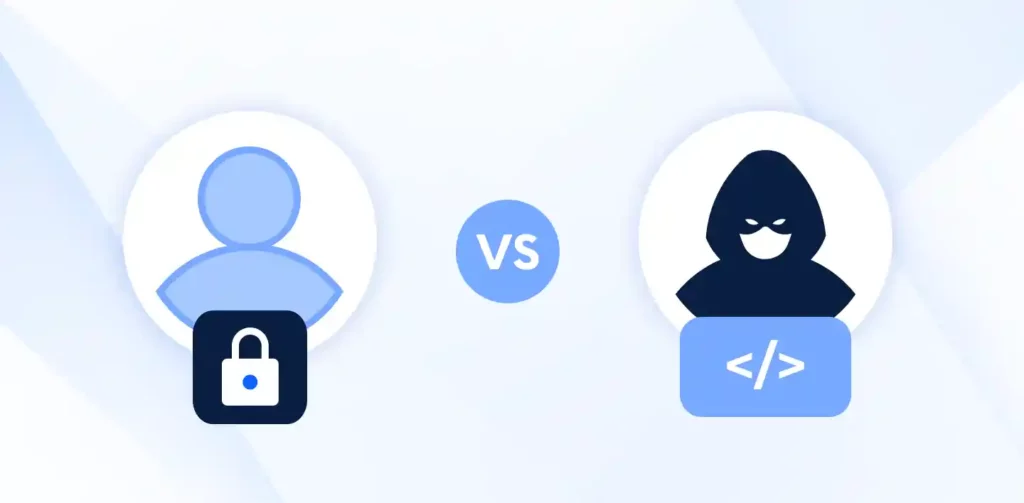
On a broader spectrum, anonymity takes the notion of privacy to the next level by enabling individuals to engage in various online activities without revealing their true identity. This level of anonymity provides a shield against unwarranted scrutiny, allowing users to express themselves, participate in forums, or conduct transactions without fear of personal exposure. It empowers individuals to navigate the online world with a sense of freedom, unencumbered by the potential consequences of disclosing their identity.
As technology advances, grasping and using these concepts is crucial. The digital landscape poses new privacy challenges, urging individuals to safeguard their information actively. Anonymity is key for controlling digital footprints and reducing identity risks.
The Difference Between Privacy and Anonymity
Understanding the distinction between privacy and anonymity is crucial in today’s digital age.
For instance, consider using a messaging app with end-to-end encryption. This ensures privacy by securing the content of your messages, limiting access to authorized parties.
Anonymity, on the other hand, might involve using a pseudonym or a username unrelated to your real identity while participating in online forums or social media platforms.
Understanding and applying technology concepts is crucial in today’s digital age. Embracing privacy and anonymity empowers individuals to safeguard personal information, navigate the digital world securely, and control their online presence. By grasping privacy nuances, individuals can make informed decisions, ensuring a safer online experience.
Privacy and Anonymity Online
Privacy and anonymity play crucial roles in shaping our online experiences, offering individuals the ability to safeguard their personal information.
Understanding how to implement these concepts in real life is essential for maintaining control over one’s online presence.
To implement privacy online, individuals can start by adjusting their privacy settings on social media platforms and other online accounts. This includes :
1. Review and adjust privacy settings on social media and online accounts to control visibility and contact permissions.
2. Manage personal information visibility by limiting the audience for posts and adjusting contact settings.
3. Enhance privacy with encrypted communication tools and secure browsing methods like VPNs to encrypt data and mask IP addresses.
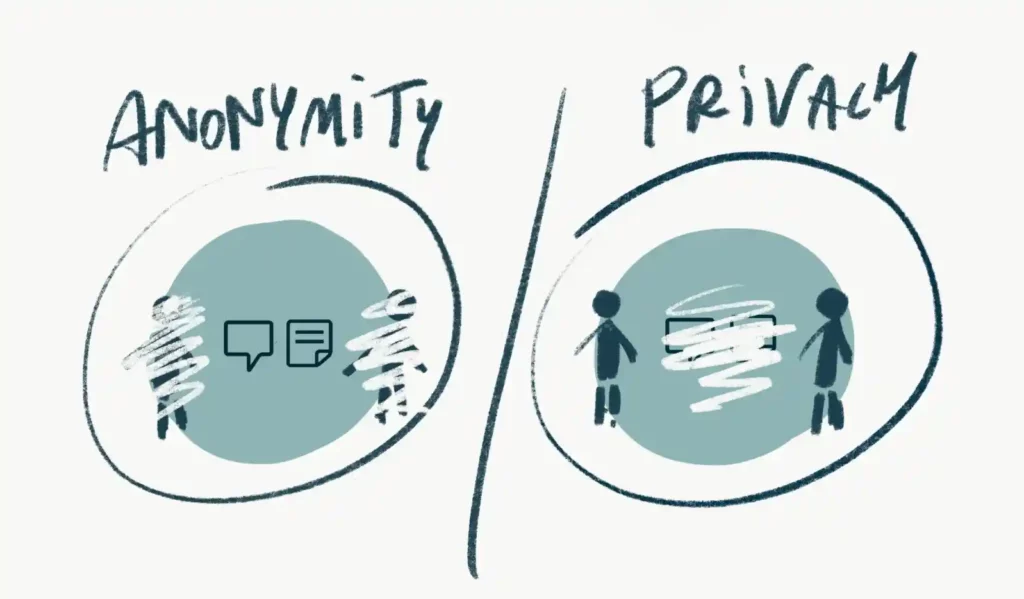
For anonymity, individuals can take steps to separate their online activities from their real identity :
1. Use pseudonyms or alternate usernames in forums, social media, and online communities to separate online activities from real identity.
2. Employ privacy-focused search engines and browser extensions to minimize online tracking and prevent personal data collection by third parties.
In the digital age, online privacy and anonymity require vigilance. Control your digital footprint by staying informed about privacy policies and minimizing data sharing. Operate discreetly, utilize strong encryption, and prioritize regular software updates.
Remember, robust security measures are key to safeguarding your identity and fostering safe, whether you’re browsing anonymously or utilizing pseudonyms.
In essence, Security serves as the foundation upon which privacy and anonymity are built in the digital realm.
How to achieve Anonymity?
Achieving anonymity online involves employing various strategies and tools to shield one’s identity and safeguard personal information.
1. Use Virtual Private Networks (VPNs) to encrypt internet traffic and conceal IP addresses, enhancing online anonymity.
2. Utilize the Tor browser to route internet traffic through a decentralized network, makes it challenging for websites to track user behavior.

3. Employ pseudonyms or alternate identities in online communities and forums to strengthen anonymity and reduce identity exposure.
4. Opt for encrypted messaging apps and email services for secure communication and confidentiality of conversations.
5. Embrace privacy-focused search engines and secure browsing practices to minimize data collection and prevent identity theft.
Stay informed about anonymity tools and implement strategies to achieve effective online anonymity.
How to achieve Privacy?
Achieving privacy in today’s digital age requires a proactive approach and a combination of strategies to safeguard personal information from unauthorized access and misuse.
Here are some essential steps to achieve privacy online:
1.Use Strong, Unique Passwords: Strengthen your online accounts by using strong, unique passwords for each account. Avoid using easily guessable passwords and consider using a password manager to securely store and manage your passwords.
2. Enable Two-Factor Authentication (2FA): Enhance the security of your accounts by enabling two-factor authentication wherever possible. This adds an extra layer of protection by requiring a second form of verification, such as a code sent to your phone, in addition to your password.
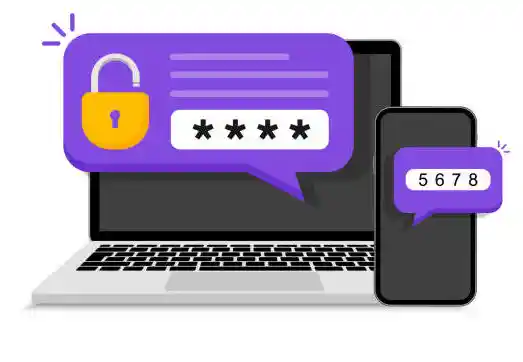
3. Browse Anonymously: Protect your online activities and browsing habits by using privacy-focused web browsers, virtual private networks (VPNs) e.g. Proton VPN, and browser extensions that block tracking cookies and prevent advertisers from collecting your data.

4. Regularly Update Software and Devices: Keep your software, operating systems, and devices up to date with the latest security patches and updates. This helps protect against known vulnerabilities and ensures that your systems are equipped to defend against emerging threats.
By implementing these strategies and staying informed about best practices for online privacy, you can take control of your personal information and enjoy a safer and more secure digital experience. Remember that privacy is an ongoing effort, and staying vigilant against potential threats is key to maintaining your privacy online.
Is HideMyID Private, Anonymous, or both?
HideMyID offers a unique solution that combines elements of both privacy and anonymity.
By allowing users to sign up for products using dummy email IDs, HideMyID ensures a level of anonymity, as the user’s real email address remains hidden from the product or service provider.
Additionally, by forwarding emails from products to the user’s existing main email ID, HideMyID enables users to maintain control over which emails to receive and which to block, enhancing their privacy.
With HideMyID, users can enjoy the benefits of both anonymity and privacy, never having to worry about revealing their personal information again.
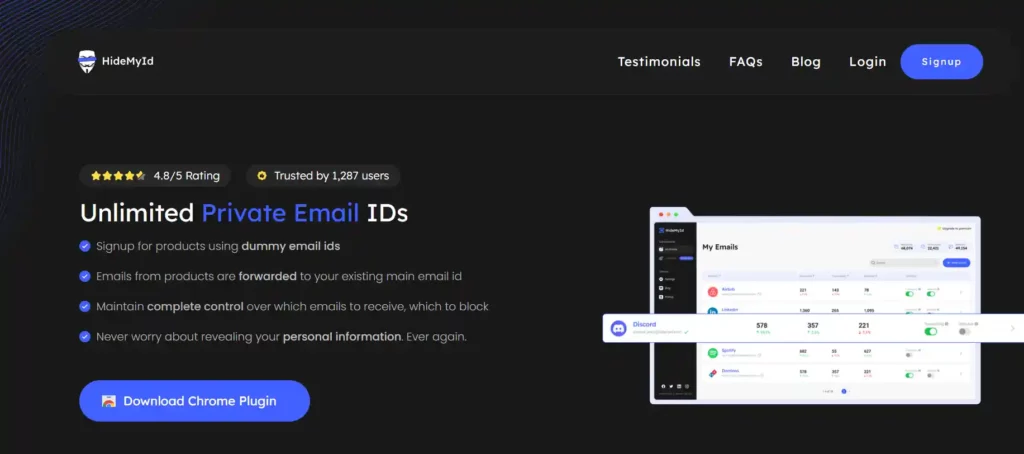
Understanding the disparities between privacy and anonymity, and employing this assessment method prior to registering for a new service, will empower you to enhance the protection of your personal information, data, and digital rights. Armed with this knowledge, you are now equipped to make informed decisions in safeguarding your online presence.
